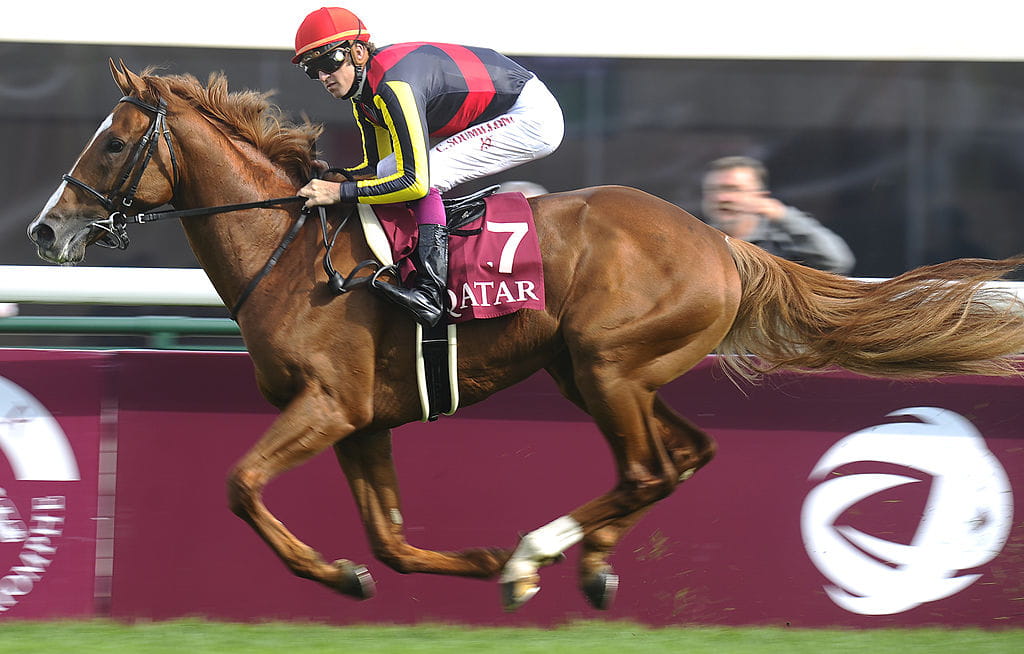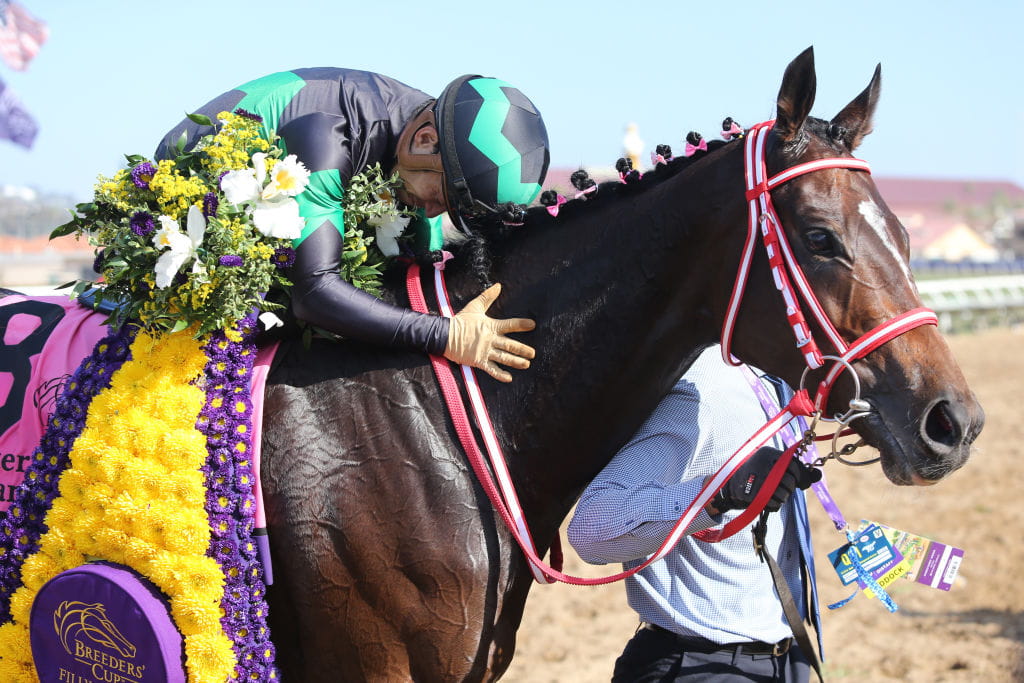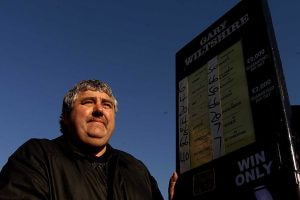How Japan Has Earned the Respect of the Horseracing World
Japan has been trying to win the Prix de l’Arc de Triomphe for over fifty years. The country’s first runner was Speed Symboli who finished out of contention in 1969. 30 years later, El Condor Pasa was beaten half-a-length into second by Montjeu in Europe’s premier all-aged contest.

The Japanese bred and trained Orfevre finished second in the Prix de l’Arc de Triomphe twice. ©GettyImages
Following years saw Deep Impact finish third in 2006. Nakayama Festa was beaten by just a head into second in 2010. In 2012 Orfevre looked like a certain winner before idling close home – he too was beaten by just a head. Orfevre finished second once again 12 months later.
The last nine years have seen Japanese trainers field over a dozen l’Arc de Triomphe runners with disappointing results. However, following unprecedented success on the world stage during the past eight months, it is very likely that a maiden l’Arc de Triomphe victory will happen sometime within the next three-to-five years.
Japan Enjoys Amazing Global Success
It is unfair to say Japan arrived on the international stage at the close of 2021. They had enjoyed some noteworthy successes beforehand – such as landing the 2006 Melbourne Cup with Delta Blues.
But, what was the occasional overseas winner, became a tsunami of major Grade-1 and Group-1 successes at the world’s biggest meetings. And, for the Land of the Rising Sun, the future is bright.
Japan’s haul of major global prizes began at the Breeders’ Cup meeting in Del Mar, California, in November. Here, five-year-old Loves Only You became Japan’s second ever Breeders Cup winner when taking the $2 million Breeders’ Cup Filly & Mare Turf.

Jockey Yuga Kawada and Japanese star, Loves Only You, following their famous Breeders’ Cup triumph in November 2021. ©GettyImages
Two hours later a third Japanese winner was on the board as Marche Lorraine took the Distaff. In the 37-year history of this contest, no horse trained outside of North America had previously claimed this Breeders’ Cup dirt race.
Major Money Won in Hong Kong and Saudi Arabia
Five weeks later Loves Only You was sent to Hong Kong to contest the Group-1 Hong Kong Cup. Not only did she land the £3 million contest, but she touched off compatriot, Hishi Iguazu, in doing so. To complete a fine day for Japanese bred and trained horses, Glory Vase also took the Group-1 the Hong Kong Vase for a second time.
Next came a near clean sweep of the big races at one of the world’s richest meetings in Saudi Arabia in late February. Authority set the ball rolling with an unchallenged victory in a Group-3 netting a £666,666 prize. Songline and Dancing Prince collected the same purse when taking later races.
Despite odds of 14/1, Japan’s Stay Foolish also won readily to collect £1.1 million in a marathon contest. And, while Sekifu and Consigliere failed to win the Saudi Derby, they finished an admirable second and third in the race.
Japan Invades the Dubai Desert
By late March, attention had turned to Dubai and the enormously valuable World Cup meeting. Punters should have begun to recognize the prowess of Japanese bred and trained horses at this point, but they had not.
On that day Japanese horses claimed five wins from nine races. The ball was set in motion by Bathrat Leon. Successful just once in 11 starts on home soil, this four-year-old streaked away with the Godolphin Mile at odds of 66/1.
Two more Group-2 victories followed before Panthalassa dead-heated in the $5 million Group-1 Dubai Turf. Shahryar would later claim the Group-1 Longines Dubai Sheema Classic and its $6 million prize.
A Japanese runner, Chuwa Wizard, also came storming home to take third in the day’s showpiece, the $12 million Dubai World Cup. Ridden closer to the fore, the seven-year-old could have possibly finished closer.
Where Has Japan’s Success Come From?
Japan’s success starts with breeding. For the last 20-plus years, Japanese breeders have purchased some of the best broodmares from around the world. Resultantly, the quality of their horses has gotten better and better.
The flagbearers are the Shadai Farm of Teruya Yoshida and the Northern Farm of his brother, Katsumi Yoshida. They have substantially improved the quality of their bloodstock over three decades. The transformation began under the vision of their late father, Zenya Yoshida, who laid down the foundations for a breeding empire.
His game-changing import of 1989 North American Horse of the Year Sunday Silence was complemented by the purchase of many of the world’s best broodmares and broodmare prospects. Four of Japan’s five 2022 Dubai winners were sired by sons and grandsons of Sunday Silence.
Will Japan Dominate the Horseracing World?
It is extraordinary to consider that Japan did not bring their very best runners to the World Cup meeting. The pre-race form of every winner shows each had tasted sound defeat in most of the Group contests they had contested on home soil.
Factually, prize monies are so lucrative that Japanese trainers do not have to travel overseas with their best horses. It would appear their indelible mark on the world’s most prestigious races is being made by those unable to take top-flight domestic silverware.
Japanese betting revenues are in the neighborhood of $25 billion per annum. With much of the profits created by betting reinvested into racing prize funds, the racing industry is allowed to go from strength to strength.
Japanese meetings are now amongst the most valuable in the world. To support this, the Japanese Racing Association undertakes various initiatives to disseminate and develop what they call ‘equine culture’. …Lessons are there to be learned by other racing nations.



